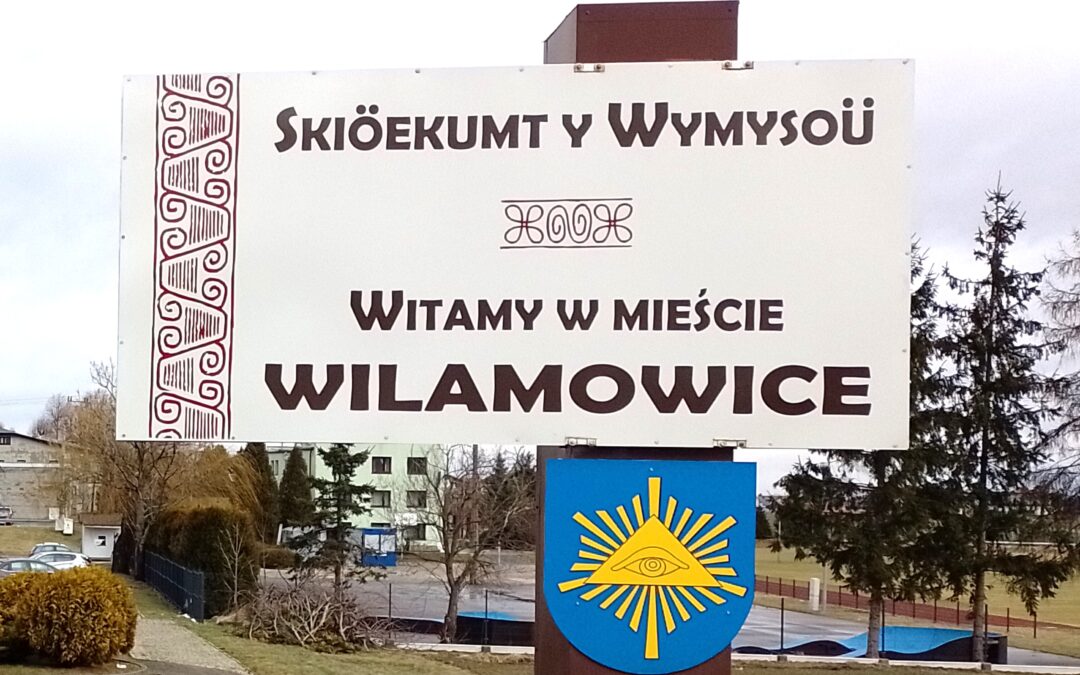Keep our news free from ads and paywalls by making a donation to support our work!

Notes from Poland is run by a small editorial team and is published by an independent, non-profit foundation that is funded through donations from our readers. We cannot do what we do without your support.
President Karol Nawrocki has vetoed a bill that would have recognised Wymysorys, which is spoken by less than 100 people in one small Polish town, as an official regional language of Poland.
“The president believes that every manifestation of local patriotism and concern for preserving ancestral heritage deserves respect, but the determination of whether a given ethnolect is a regional language cannot be arbitrary or political,” wrote Nawrocki’s office.
Its statement added that the president, having examined the opinions of linguists, had “legitimate doubts” over whether the proposed law “was based on substantive considerations, and not solely on symbolic or political ones”.
Wymysorys is said to be "the smallest Germanic language".
Also called Vilamovian in English, the language is critically endangered, spoken only in the town of Wilamovice, in southern Poland.
The number of fluent speakers is estimated to be below 40, most of whom are elderly. pic.twitter.com/7aw1RW83aW
— Dr Danny Bate (@DannyBate4) April 6, 2021
Wymysorys (known as “wilamowski” in Polish) is spoken in Wilamowice, a town of around 3,000 people in southern Poland. It is believed to have originated in the 13th century and belongs to the family of West Germanic languages, but has strong influences from Polish, a West Slavic language.
In the early 20th century, a majority of residents of Wilamowice still spoke Wymysorys. Use of the language was then promoted by the German-Nazi occupiers during World War Two. But after the war, the new communist authorities sought to prevent its use.
As a result, in Poland’s most recent national census, conducted in 2021, only ten people recorded themselves as speaking Wymysorys at home. But it is believed that dozens, maybe hundreds, still understand Wymysorys, and recent years have seen attempts to protect and revitalise it.
That has included efforts over the last decade to have Wymysorys recognised as an official regional language. Such recognition allows a language to be taught in schools and used in local administration.
Currently, only one language in Poland has that status, Kashubian, which is native to northern Poland and is spoken by around 87,600, according to the census.
A bill to recognise Silesian, which is spoken by around 460,000 people, was last year passed by parliament. But it was subsequently vetoed by opposition-aligned conservative president Andrzej Duda. He argued that Silesian is a dialect of Polish rather than a language.
Poland’s first-ever university course to train teachers of Silesian language and culture has been launched, with all available places filled within three days.
It comes months after President Duda vetoed a bill to recognise Silesian as a regional languagehttps://t.co/UPpTsrtGyx
— Notes from Poland 🇵🇱 (@notesfrompoland) November 18, 2024
Last month, the Sejm, the more powerful lower house of parliament, voted in favour of a bill to recognise Wymysorys as a regional language. The ruling coalition – which ranges from left to centre-right – was in favour, but the right-wing opposition voted against it.
Monika Rosa, an MP from the ruling coalition who was one of the initiators of the bill, told the Sejm that the “unequivocal opinion” of two academic linguists, Tomasz Wicherkiewicz and Prof. dr hab. Nicole Dołowy-Rybińska, is that “Wymysorys fully meets the definition of a regional language”.
“Recognising Wymysorys…is a gesture of justice, an act of recognition and understanding,” she added. “It is restoring a voice to a community that for decades was denied the right to use its own language -the language of its heart, the language of its ancestors – the right to its own culture and identity.”
After the bill was also approved by the upper-house Senate, it passed to Nawrocki, who succeeded Duda in August and is also aligned with the opposition. On Thursday evening, his office announced that he had vetoed the legislation.
In the justification for his decision, Nawrocki claimed that, in fact, linguists remain divided over whether Wymysorys is really a separate language or rather than “ethnolect”, meaning a variety of a language associated with a certain ethnic group.
A presidential veto can only be overturned with a three-fifths majority in the Sejm, something that would be impossible to achieve in this case. Parliament can also seek to work further on the bill to take account of the president’s concerns and then try to pass it again.
Ustawy z podpisem Prezydenta RP:https://t.co/tMWeJ8tSwf
Weto do nowelizacji ustawy o mniejszościach narodowych i etnicznych oraz o języku regionalnym:https://t.co/3xohYQvMMM pic.twitter.com/cKNASSlc0s
— Kancelaria Prezydenta RP (@prezydentpl) October 16, 2025

Notes from Poland is run by a small editorial team and published by an independent, non-profit foundation that is funded through donations from our readers. We cannot do what we do without your support.

Daniel Tilles is editor-in-chief of Notes from Poland. He has written on Polish affairs for a wide range of publications, including Foreign Policy, POLITICO Europe, EUobserver and Dziennik Gazeta Prawna.




















